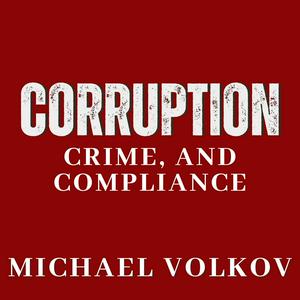Anti-Corruption Update with Scott Greytak, Transparency International and Josh Birenbaum, Foundation for Defense of Democracies
What happens when the world’s most influential anti-bribery law is abruptly paused? Is transparency merely a compliance box-tick—or the most powerful tool we have against global threats like kleptocracy, sanctions evasion, and illicit finance? In this eye-opening episode of Corruption, Crime, and Compliance, Michael Volkov is joined by two powerhouse experts in the global fight against corruption: Scott Greytak and Josh Birenbaum (*see ‘’About Guests below). Together, they break down the sweeping implications of the U.S. government’s pause on Foreign Corrupt Practices Act (FCPA)enforcement, the gutting of the Corporate Transparency Act (CTA), and what all of this means for business leaders, policymakers, and the international community.When the United States hit pause on FCPA enforcement, the global anti-corruption landscape shifted. Scott and Josh explore how companies are reacting, how allies are stepping up enforcement, and why transparency is emerging as a national security imperative. They offer a forward-looking conversation filled with insights for compliance professionals, risk officers, and anyone committed to ethical business in a volatile world.You’ll hear them discuss:Why the U.S. government's pause on FCPA enforcement shocked the global anti-corruption community—and why companies should still stay the course with compliance regardless of political signals.How the Corporate Transparency Act, once seen as the most significant U.S. anti-money laundering law in a generation, has been quietly gutted—leaving a dangerous gap in the fight against shell companies and financial crime.What it means that U.S. companies are now incentivized to form anonymously domestically to avoid ownership disclosure—inviting kleptocrats, traffickers, and foreign adversaries to hide in plain sight.Why global businesses must prepare for a sharp rise in trade compliance enforcement, as tariffs, export controls, and sanctions take center stage in economic security—and why transparency is essential to managing these risks.How foreign enforcers, especially in Europe, are beginning to step up—but why no alliance or coalition can truly fill the vacuum left by a retreating United States.What makes transparency not just a compliance tool, but a weapon against geopolitical threats—from Xinjiang’s forced labor camps to Russian shadow fleets and fentanyl trafficking.How transparency can be hardwired into foreign aid policy to protect U.S. taxpayer money, prevent narco-state development, and give American businesses a fair shot abroad.Why there’s still hope—from new bipartisan support for anti-corruption measures to the emergence of a national security lens on transparency across Congress, federal agencies, and the private sector.About GuestsScott Greytak is an anticorruption attorney and the Director of Advocacy for TI US. His work focuses on designing anticorruption laws and policies, organizing and leading ideologically inclusive coalitions, and lobbying the U.S. Congress and administration. Greytak was named a Top Lobbyist in 2021, 2023, and 2024 by the National Institute for Lobbying & Ethics. Josh Birenbaum is the deputy director of FDD’s Center on Economic and Financial Power, focusing on illicit finance risks and global corruption. Previously, Josh was the research and policy analyst at TRACE International, producing articles, book chapters, op-eds, model policies, industry reports, and speeches on sanctions, export controls, corruption, conflict minerals, money laundering, human rights, illicit finance, and other topics. ResourcesScott Greytak on LinkedIn | Email -
[email protected] Birenbaum on LinkedIn | Email -
[email protected] Volkov on LinkedIn | TwitterThe Volkov Law Group
